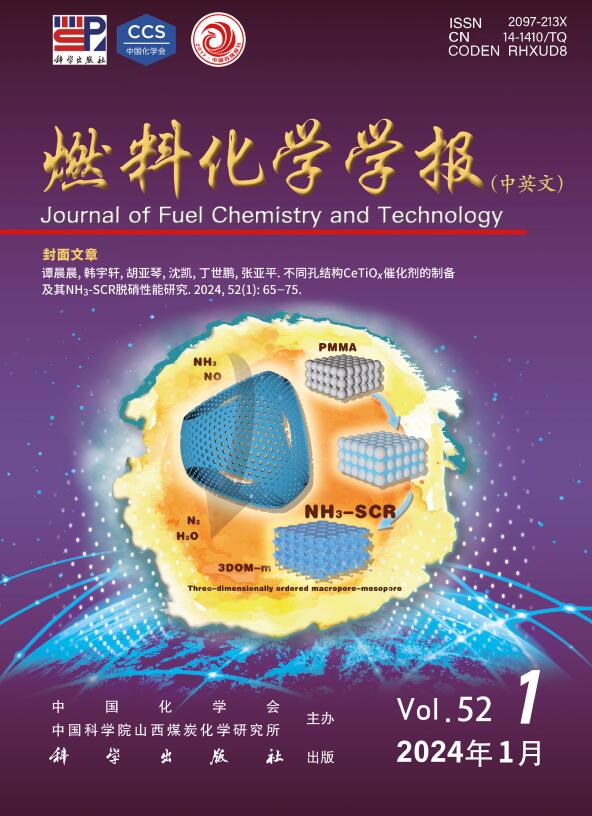Research progress in the oxidative conversion of methanol/dimethyl ether
Q3 Energy
引用次数: 0
Abstract
The synthesis of high-value-added oxygenated chemicals (such as formaldehyde, methyl formate, dimethoxymethane, polyoxymethylene dimethyl ethers, etc.) from methanol/dimethyl ether through an oxidative route boasts advantages of high atom utilization efficiency, distinctive product characteristics, and low carbon emissions, attracting significant attention as a pathway for high-value utilization. However, the oxidation conversion of methanol/dimethyl ether also confronts several challenges, including difficulty in activating C-H bonds at low temperatures, susceptibility to deep oxidation at high temperatures, and difficulty in controlling the chain growth of C-O bonds in larger molecular products. This review will focus on the latest progress in elucidating the mechanisms of the activation and cleavage of C-H bonds in methanol/dimethyl ether molecules at low temperatures and the controllable chain growth of longer C-O bonds by relevant research teams. It aims to outline several representative catalytic reaction mechanisms, thereby providing valuable insights for this field and related research endeavors.
甲醇/二甲醚氧化转化的研究进展
甲醇/二甲醚氧化合成高附加值含氧化学品(甲醛、甲酸甲酯、二甲氧基甲烷、聚甲氧基二甲基醚等)具有原子利用效率高、产品特性鲜明、低碳排放等优点,是一种高价值利用途径,备受关注。然而,甲醇/二甲醚的氧化转化也面临着一些挑战,包括在低温下难以激活C-H键,在高温下易发生深度氧化,以及在大分子产物中难以控制C-O键的链生长。本文将重点介绍甲醇/二甲醚分子中C-H键在低温下的活化和裂解机制以及相关研究团队在较长C-O键的可控链生长方面的最新进展。旨在概述几种具有代表性的催化反应机制,从而为该领域和相关研究工作提供有价值的见解。
本文章由计算机程序翻译,如有差异,请以英文原文为准。
求助全文
约1分钟内获得全文
求助全文
来源期刊

燃料化学学报
Chemical Engineering-Chemical Engineering (all)
CiteScore
2.80
自引率
0.00%
发文量
5825
期刊介绍:
Journal of Fuel Chemistry and Technology (Ranliao Huaxue Xuebao) is a Chinese Academy of Sciences(CAS) journal started in 1956, sponsored by the Chinese Chemical Society and the Institute of Coal Chemistry, Chinese Academy of Sciences(CAS). The journal is published bimonthly by Science Press in China and widely distributed in about 20 countries. Journal of Fuel Chemistry and Technology publishes reports of both basic and applied research in the chemistry and chemical engineering of many energy sources, including that involved in the nature, processing and utilization of coal, petroleum, oil shale, natural gas, biomass and synfuels, as well as related subjects of increasing interest such as C1 chemistry, pollutions control and new catalytic materials. Types of publications include original research articles, short communications, research notes and reviews. Both domestic and international contributors are welcome. Manuscripts written in Chinese or English will be accepted. Additional English titles, abstracts and key words should be included in Chinese manuscripts. All manuscripts are subject to critical review by the editorial committee, which is composed of about 10 foreign and 50 Chinese experts in fuel science. Journal of Fuel Chemistry and Technology has been a source of primary research work in fuel chemistry as a Chinese core scientific periodical.
 求助内容:
求助内容: 应助结果提醒方式:
应助结果提醒方式:


